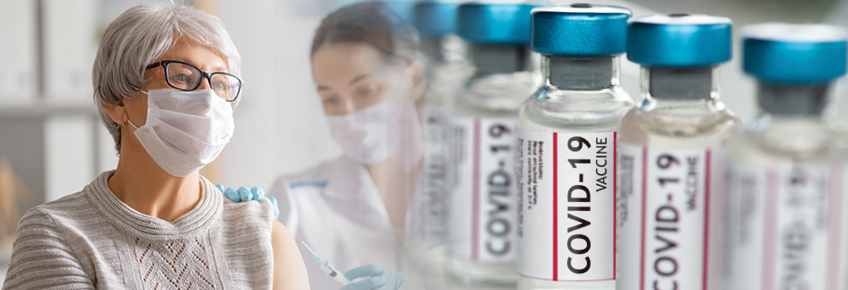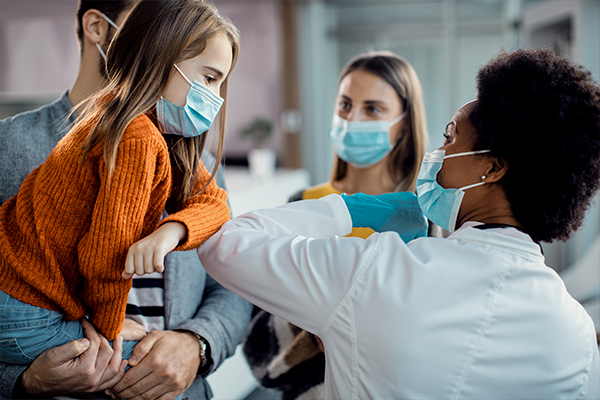After the Corona epidemic spread rapidly in the world about 3 years ago, and after discovering many vaccines that provide us with protection from severe infection, and that obviates the need to enter the hospital….. it was necessary to mention some updates and answers related to the most common questions about Vaccines , especially when 61.8% of the world population has received at least one dose of a COVID-19 vaccine
Follow with us the following article to stay informed of everything new about Corona vaccines
What vaccines are there against COVID-19 ?
There are several COVID-19 vaccines validated for use by WHO , , the following vaccines have obtained EUL:
- The Pfizer/BioNTech Comirnaty vaccine, 31 December 2020.
- The SII/COVISHIELD and AstraZeneca/AZD1222 vaccines, 16 February 2021.
- The Janssen/Ad26.COV 2.S vaccine developed by Johnson & Johnson, 12 March 2021.
- The Moderna COVID-19 vaccine (mRNA 1273), 30 April 2021.
- The Sinopharm COVID-19 vaccine, 7 May 2021.
- The Sinovac-CoronaVac vaccine, 1 June 2021.
- The Bharat Biotech BBV152 COVAXIN vaccine, 3 November 2021.
- The Covovax (NVX-CoV2373) vaccine, 17 December 2021.
- The Nuvaxovid (NVX-CoV2373) vaccine, 20 December 2021
If you want learning more about Other COVID-19 vaccine products and the progress of their regulatory review by WHO . click here :
https://extranet.who.int/pqweb/sites/default/files/documents/Status_COVID_VAX_16Feb2021.pdf

who shouldn’t be vaccinated against COVID-19 ?
There are very few conditions that would exclude someone from being vaccinated, but you should NOT be vaccinated if:
- You have a history of severe allergic reactions/anaphylaxis to any of the ingredients of the COVID-19 vaccine, in order to avoid possible adverse effects.
- You have a fever over 38.5ºC on the day of your vaccine appointment. Postpone until you have recovered.
- You currently have confirmed or suspected COVID-19. Wait until you have completed the mandated isolation period and your acute symptoms have passed to get vaccinated.
COVID-19 vaccines are safe for people taking blood thinners, but you should let the person giving you the vaccine know about any medication you are taking BEFORE you are given the vaccine.
In addition to the general recommendations above, each vaccine may have specific considerations for specific populations and health conditions.

Should I be vaccinated if I have had COVID -19?
Yes. Even if you have already had COVID-19, you should be vaccinated. The protection that someone gains from having COVID-19 will vary greatly from person to person. The immunity people get from being vaccinated after having a natural infection is consistently very strong. Getting vaccinated even if you have had COVID-19 means you are more likely to be protected for longer.
There is currently no evidence to determine the optimal time that you should wait to be vaccinated after having COVID-19. Persons with laboratory-confirmed COVID-19 infection can consider delaying vaccination for 6 months based on the fact that natural infection leads to some protection against infection. Ask your health worker for advice.
Which COVID- 19 vaccine should I get ?
All vaccines with WHO Emergency Use Listing are highly effective at preventing serious illness, hospitalization and death due to COVID-19. You should accept the vaccine you are offered first and get vaccinated as soon as it is your turn to reduce your risk.
Do not delay getting vaccinated, unless advised to by your health care provider, as this could put you at risk of COVID-19. Getting vaccinated could save your life.
Do the COVID – 19 vaccines protect againt virus variant ?
The COVID-19 vaccines with WHO Emergency Use Listing (EUL) provide different levels of protection to infection, mild disease, severe disease, hospitalization and death. Research is ongoing by thousands of scientists around the world to better understand how new virus mutations and variants affect the effectiveness of the different COVID-19 vaccines.
In general, the COVID-19 vaccines are very effective at preventing serious illness, hospitalization and death from all current virus variants. They are less effective at protecting you against infection and mild disease than they were for earlier virus variants; but if you do get ill after being vaccinated, your symptoms are more likely to be mild.

Can I have the second or third dose with different vaccine than the first dose ?
If you can, get your second or third dose with the same vaccine you received for your first dose.
There isn’t enough data yet on all COVID-19 vaccines to know whether they can be mix-and-matched. More research is being done to understand this better to inform future recommendations.
Does having side effects mean that the vaccine is working? What does having no side effects mean?
The vaccine stimulates your immune system to protect you from the virus. This process can sometimes cause side effects like fever, chills or headache, but not everyone will experiences any side effect. The presence or magnitude of the reaction you may have vaccination does not predict or reflect your immune response to the vaccine.
You do not have to have side effects in order to be protected
How long does protection from COVID – 19 vaccines last ?
We still don’t know exactly how long protection from COVID-19 vaccines lasts, but current data indicates that most people have strong protection against serious illness and death for at least 6 months.
Immunity may reduce faster in people who are older or who have underlying medical conditions, or who have a high level of exposure to the virus. To protect yourself, get vaccinated AND continue practicing the other protective behaviours against COVID-19
Can I get vaccinated against COVID -19 if I am pregnant ?
Yes, you can get vaccinated if you are pregnant. During pregnancy, you are at higher risk of serious illness caused by COVID-19. You are also at higher risk of delivering your baby prematurely if you contract COVID-19. While there is less data available on vaccination of pregnant people, evidence on the safety of COVID-19 vaccines during pregnancy has been growing, and no safety concerns have been identified. Especially in countries with high transmission, or if you have an occupation where you are at more risk of being exposed to COVID-19, the benefits of getting the vaccine outweigh potential risks. There is no risk of getting COVID-19 from the vaccine
